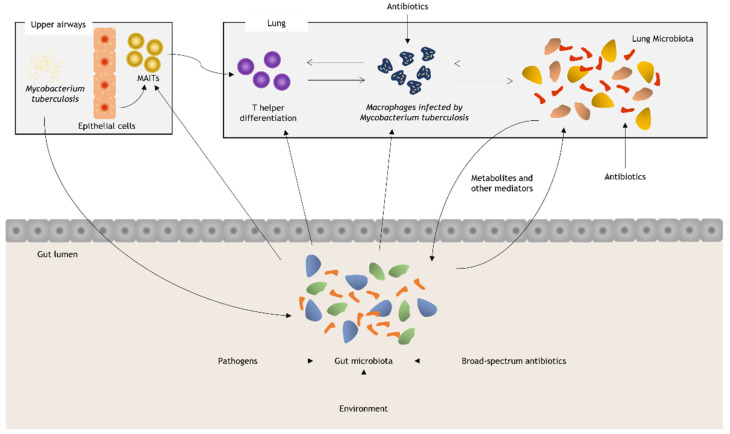Figure 1.
Environmental alterations such as diet, the use of broad-spectrum antibiotics, and colonization by pathogenic bacteria can alter the normal composition of the intestinal microbiota. M. tuberculosis, through mostly unknown mechanisms, is also able to modulate the diversity of the intestinal flora. The response of upper pathway epithelial cells and resident invariant T lymphocytes (MAITs) is modulated by the gut microbiota. These can assist the macrophage response to infection. The intestinal microbiota is a strong modulator of the T helper response in the lung and, as such, could affect the ability of macrophages to eliminate M. tuberculosis through the increase in the production of IFN-γ, IL-12, and reactive oxygen species. Bacterial-derived metabolites and other mediators are among those responsible for maintaining the dynamic balance between the intestinal and lung microbiota.

